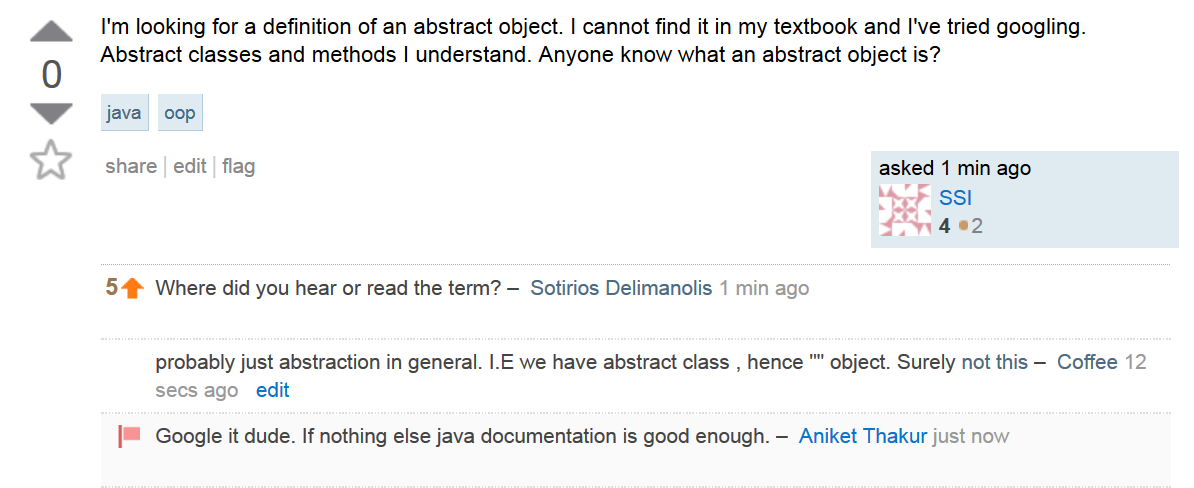I think in general, this is not constructive. In this particular case, it's definitely not constructive. The asker explicitly says he tried googling it, so telling him "google it" means you didn't even read the question.* It's mostly used on stupid questions that should be downvoted to oblivion and/or closed. Downvoting and closing is all you need to do; adding a comment that does nothing but insult the user doesn't help.**
However, there are cases where "Google it" can be a useful comment. For example, imagine you've written this comment:
You can't do this with the high-level libfrotz API; you need to use the low-level API. It's impossible to even get you started until you read a tutorial on the basics of that API.
… or:
There's no way to answer this question, because Python objects don't work like that. There is no prototype to access; objects are instances of classes. You need a tutorial on class-based OO, whether Python-specific or general.
Typically, the response is:
@commenter: Where do I find a tutorial?
Even if I knew which of the 3 low-level Frotz tutorials or 69105 class-based OO tutorials was the best one for the asker (which I almost certainly don't), recommending off-site resources is explicitly listed as one of the things SO is not good for. As soon as I recommended one, someone else would say, "No, use this one instead." So the best response is:
Google it.
* Unless you're trying to call the asker a liar, but if it's important enough to say that, say it directly: "You claim you tried googling it, but I don't believe you. When I google the exact same thing, the first result is exactly what you say you can't find."
** Adding a comment to help the user is a different story. But in a case like this, nobody's trying to help.
